
Lucía Bosé
Birth : 1931-01-28, Milan, Lombardy, Italy
Death : 2020-03-23
History
Bosè was born in Milan, Italy, the daughter of Francesca Bosè and Domenico Borloni. After a number of years working in a bakery, Pasticceria Galli, in her native city, in 1947 she won the second edition of the Miss Italia beauty contest. Later, she acted in Dino Risi’s short The Five Days of Milan, then in 1950, she made her big screen debut in Giuseppe De Santis’ Non c'è pace tra gli ulivi (No Peace Under the Olive Tree). The same year, she gave a performance as Paola Molon in Antonioni's Cronaca di un amore. In 1953, Michelangelo Antonioni asked her to play Clara Manni in La signora senza camelie and Juan Antonio Bardem cast her in the lead of Muerte de un ciclista (1955). She also appeared in the 1955 film Gli Sbandati and played the main female role in Luis Buñuel's Cela s'appelle l'aurore (1956).
Her career flourished until 1955, when she fell in love with Spanish bullfighter Luis Miguel Dominguín during the filming of Muerte de un ciclista, and gave up acting to marry and raise a family. The couple married twice, first on 1 March 1955 in Las Vegas and then on 19 October of that year, in a Catholic ceremony at the family estate or finca. Dominguín returned to the bullfighting arena abroad, and their first child, Miguel Bosé, was born in Panama on 3 April 1956. Their second child, Lucia, was born in 1957 and their third, Paola, was born in 1960. Lucia and her husband were married until 1968, but their differences were accentuated over time, especially her lack of interest in bullfighting. She never became close to the "Dominguín" clan, and his marital infidelities also took their toll.
In 1960, she took a small uncredited role in Jean Cocteau's film Le testament d'Orphée, ou ne me demandez pas pourquoi!. Then, after divorcing Dominguin, she returned full-time to the screen, appearing in Fellini's Fellini Satyricon (1969) and starring in the Taviani Brothers' Under the Sign of Scorpio (1969), Mario Colucci's Something Creeping in The Dark (1971), Liliana Cavani's L'ospite (1972), Giulio Questi's Arcana (1972), Marguerite Duras' Nathalie Granger (1972), Beni Montresor's La messe dorée (1975), Jeanne Moreau's Lumière (1976) and Daniel Schmid's Violanta (1976). She continued to be active in both Italian and Spanish films, appearing in Francesco Rosi's Cronaca di una morte annunciata (1987), Agustí Villaronga's El niño de la luna (1989), Ferzan Özpetek's Harem Suare (1999) and Roberto Faenza's I Viceré (2007).

Self - Actress (archive footage)
An account of the successful life and work of Spanish singer and actor Camilo Sesto (1946-2019), the portentous, almost miraculous, voice of Spanish pop music for decades, through his own point of view, told during his last interview and in many others, and through the words of those creators whose own work has been strongly influenced both by his art and his magnetic personality.
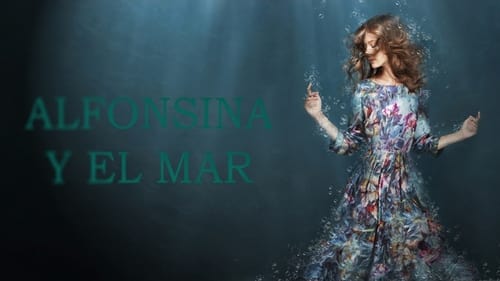
Lucia
An 80-year-old actress returns to the small Chilean town of her youth to fulfill her father's dream of creating a TV channel in a place which has never known television.

Self
Like so many other actors, Ava Gardner hated to watch her films. She said that the woman on the screen wasn't her. But all films tell two stories: the plot and the tale of the bodies filmed. This film narrates what happened between two images: a first shot of 'Pandora' and a first shot of 'Harem', the first and last movie filmed by the actress in Spain. Ava must certainly have thought that neither of these two women had anything in common with herself.
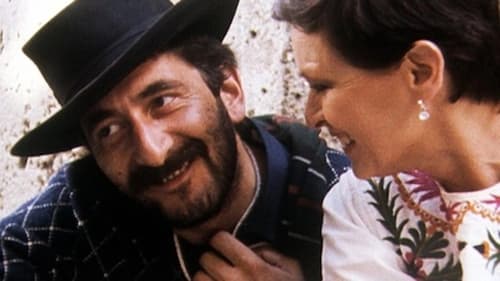
(archive footage)
When director Daniel Schmid grew up, his parents ran a hotel in the Alps, and this singular setting was to influence his film. Rather by coincidence he came to Berlin in the early 1960s and became part of the new German wave. Schmid worked with, among others, Wenders and Fassbinder, for example as an actor in Wender’s The American Friend. He met Ingrid Caven, who was to play a diva in several of his films. This is a documentation of a part of modern European film history and a good analysis of artistry and how it corresponds to the individual behind the camera. A wealth of archival footage brings us close to many directors and actors in Schmid’s circle. If you’ve never seen a Daniel Schmid film, you are sure to want to after watching this portrait of his life.
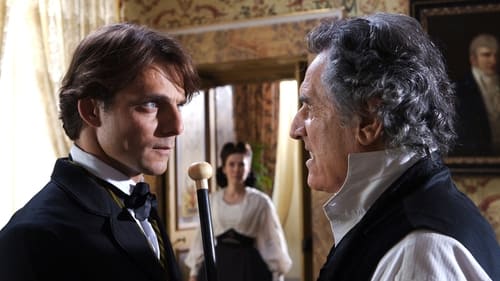
Donna Ferdinanda
In late 19th-century Sicily, the noble Uzeda family – whose lineage dates back to the ancient viceroys that ruled those lands – fights to preserve its waning power in the face of the newly unified Italian regime.

Self

Safiye anziana
A story of the impossible love between one of the Sultan's concubines and one of his eunuchs in a harem at the end of the Ottoman Empire.
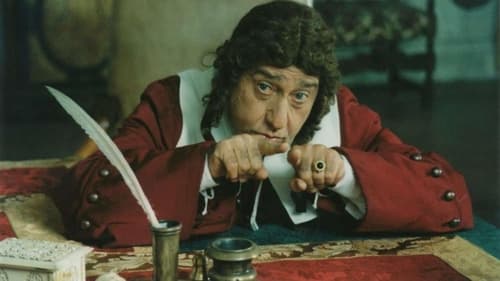
Dona Elvira
Misery money-lender Arpagone is looking to arrange three weddings simultaneously - to cut down on costs. One for himself and the others for his two children. Of course he doesn't approve of the choices his son and daughter have made and conspires to arrange more well to do spouses against their will. However, fate will prove itself to be on the side of true love, not of the greedy.

Grazia
Annetta, of Sicilian origins, is annoyed by the different treatments and freedoms reserved for men and women. Because of her rebellious attitude, the girl is locked up in the house of her relatives where she suffers an attempt of violence by her uncle. After returning to her parents, she finally gets married to her beloved Nicola.
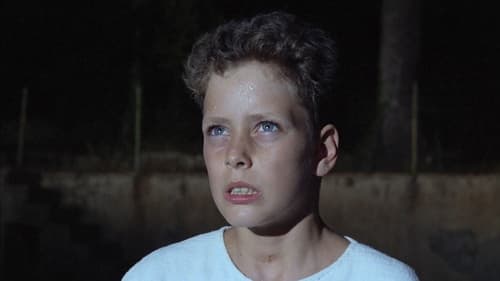
Directora
Adopted by a treacherous semi-scientific cult where extraordinary mental powers are common, extraordinary 12-year-old David begins an archetypal journey across two continents to find his destiny as Child of the Moon.

Madre de Adriana
Adriana and her mother left Brumal, a strange and remote village, and moved to the city while still a child. Once Adriana's mother dies, she's marked by memories and intense nostalgia for her hometown, and returns to Brumal.
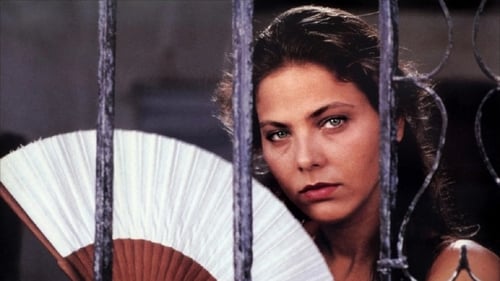
Placida Linero
This suspenseful Italian crime drama is set in a Colombian river town and chronicles the series of events that led up to murder. Based on a novel by distinguished author Gabriel Garcia Marquez, the tale begins in the present as a middle-aged doctor returns to the village after a twenty-year absence to investigate the murder that occurred just before he left.

La mère

Donna Violanta
Voted for in the 2012 Sight & Sound poll

Avelina
After completing his high school studies at the age of twenty-four, Óscar is an immature student, unable to afford alone his return to home during the summer season. Then he manages to convince Carlos, his young math teacher, to accompany him. Already in the family home, Óscar begins to behave in an increasingly unbalanced and irrational way. Meanwhile, his family will endeavor to see him as the reflection of the absent father figure.

Laura
Sarah, an actress nearing her forties, has invited 3 friends to join her for a holiday in Provence. This is the prologue for what happened a year ago in Paris with a man Sarah had long considered a platonic friend. She had just finished a film, had also finished her relationship with the director and was about to receive an award…

Francesca
A mental hospital somewhere in Tuscany during the thirties. Far away from fascism, this closed world is rules over by Dr. Bonaccorsi, a passionate benevolent psychiatrist whose dream is to isolate the germ of madness. He is also a very active ladies'man and makes three women benefit from his sexual itch: Francesca the hospital manager's wife, Bianca, his devoted nurse and Carla, a nymphomaniac doctor's wife. His well-ordered universe starts being challenged with the coming of Anna, a trainee psychiatrist, who disapproves of his theory on the origin of madness. Worse, she resists his advances. As Bonaccorsi is more insecure than he looks, what will become of him?

Hélène
A middle-aged couple invites a group of youngsters to their luxury villa to introduce them into the rituals and mystery of love and lust.

Eva
Driving home in the brand new Volvo his wealthy wife gave him for his birthday, Ricardo comes upon a smoking, overturned auto with a man and boy trapped inside but, afraid he'd get bloodstains in his new car, he ignores their cries for help and drives away just before the wreck explodes. Soon after, blood begins pooling in his backseat and Ricardo comes to know how Lady Macbeth felt when he can't get the damned spots out no matter how many times he cleans the car...

Isabelle Granger
With little or no embellishment, filmmaker Marguerite Duras offers a simple, often wordless chronicle of a woman's day. She and her friend are seen doing yard work, talking about their families and receiving the occasional visitor. The brightest spot in the day is when a washing machine salesman comes to call.
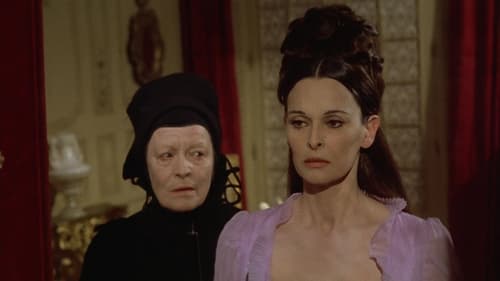
Erzebeth Bathory
Countess Elizabeth Bathory conspires with her husband to acquire the blood of virgins to maintain her youth and beauty.

Chiara Mora - la moglie di Giacomo
Historical drama, based upon the novel by Alessandro Manzoni.

Mamma
A Sicilian widow earns her living as a clairvoyant, in Milan, but she hasn't got any power at all. Her son instead holds supernatural powers and with the help of his mother he becomes a strong sorcerer. But he fails perhaps to understand the real strength he possesses inside and unbinds uncontrolled forces that lead people that surround him to go mad.

Alexandra
The widow Alexandra and her schoolgirl daughter Sandra live together in a luxurious villa in Spain. When Fernando, an old love of Alexandra's, appears in town the two rekindle their love affair until Alexandra finds that he is being paid to be the companion of a rich older woman

Anna
A forty year old woman, who has been in an asylum, goes to live with her brother's family. She proves incapable of adapting herself to family life, takes refuge in the country alone with her memories, and is later returned to the asylum.

Sylvia Forrest
A group of stranded travelers takes refuge in an old abandoned house, only to find out that they are not the only residents of the building.

Nora Tosatti
A man is shot in an underground car-park by a mysterious bearded man. As he dies he recollects the events that led him to this situation, including adulterous liaisons and jealous envy.

Evelyne
Story of a man with a double personality, on one side his character is honest and sincere, which makes him appreciate reality and participates with sorrow in the tragedies of our times: his other side is that of a dreamer and he identifies himself with Swift's hero Gulliver.
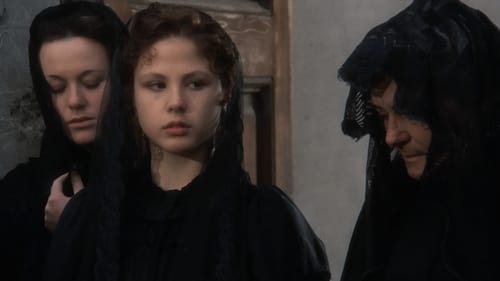
Viola
Metello struggles to escape from the poverty that led to the premature death of his parents, and that is the lot of the working class in northern Italy during the second half of the 19th century. Metello fights his way out from his condition through hard work, a determined will to resist oppression inherited from his father, but also by taking advantage of his good looks when dealing with women. Metello progressively assumes an important role in the organization of an emerging workers movement, and attempts to conciliate his risky political activities with his private life.
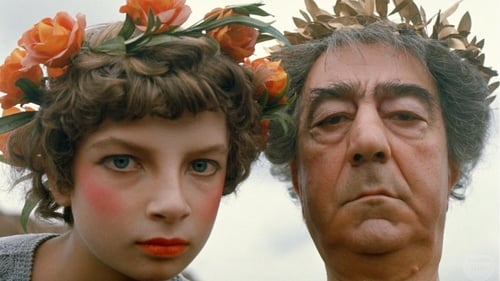
La matrona
After his young lover, Gitone, leaves him for another man, Encolpio decides to kill himself, but a sudden earthquake destroys his home before he has a chance to do so. Now wandering around Rome in the time of Nero, Encolpio encounters one bizarre and surreal scene after another.

María
María belongs to the upper bourgeoisie and has always had everything in life, even a brilliant, educated husband; in short, an intellectual to presume. Alejandro, on the other hand, has been going up day by day, he has grown up with his work, believing in himself -he is an economist- he has fought with all his strength to achieve a higher social level and he has succeeded. He is a professor in the University, executive of a great company, owner, in short, of a beautiful villa in the outskirts. But he is, nevertheless, in the critical age, in the age of taking stock of his past, of justifying himself. And the truth is that, despite his material triumph, he is not happy, there is no reason to be in his participation in society, he is not satisfied with anything. It is, in a word, a step away from his inner failure. In this situation he discovers, in turn, that María accuses him of having dedicated more time to succeed than to love her.

Señora (as Lucia Bose)
Portabella’s first feature, co-scripted by poet Joan Brossa, became one of the most influential works of the Barcelona avant-garde, although like all his early films, it circulated only in an underground fashion. Eschewing dialogue, the director constructs a non-narrative story in fragments that reveal the daily lives of an adulterous couple interspersed with a cryptic stream of unrelated imagery. The title of this homage to directors including Eisenstein, Antonioni, Bergman, and Buñuel refers to the 29 “black years” of the Franco dictatorship. — chicago.cervantes.es
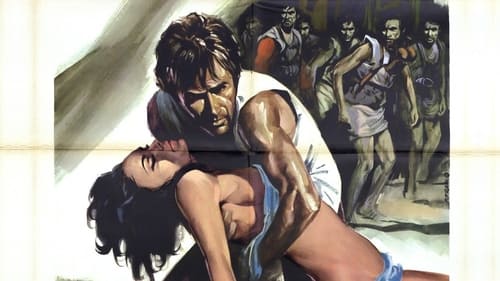
Glaia
An island has been decimated by a volcanic eruption and the few survivors escape to a nearby island. Led by Rutolo, they know that their new home is equally susceptible to such a catastrophe via its own volcano, but they are unable to convince the current inhabitants of Island #2 to flee with them to a mainland.

George Sand
The cigar-smoking French writer, George Sand (Lucia Bose) and her lover, the composer-pianist Chopin (Christopher Sandford) have rented a former monastery in Mallorca as a winter retreat. They have even shipped a piano to the site, so that Chopin can continue his work. However, what promised to be a warm, sunny vacation turns sour as the locals disapprove of Sand, the servants are surly and mysterious, and the monastery is cold. She has her revenge, however. She wrote the book A Winter in Mallorca about her miserable winter retreat. This film follows that book closely, with concern for historical accuracy, which did not increase the Spanish filmmakers' popularity with their countrymen.

Monja
Lucas, typical average Spaniard, shy, gray and repressed, is married to sanctimonious Enriqueta, so he is always aware of other women, although the couple are already parents of nine children, which is why Lucas will do the unspeakable to convince his wife to take the contraceptive pill, something practically sinful for a practicing Catholic like Enriqueta.
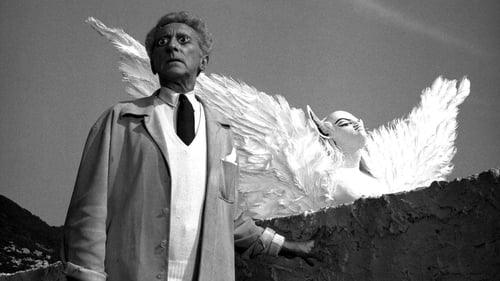
Orphée's Friend
Outside time and reality, the experiences of a poet. The judgement of the young poet by Heurtebise and the Princess, the Gypsies, the palace of Pallas Athena, the spear of the Goddess which pierces the poet's heart, the temptation of the Sphinx, the flight of Oedipus and the final Assumption. This film is the third part of Cocteau's Orphic Trilogy, which consists of The Blood of a Poet (1930), Orpheus (1950) and Testament of Orpheus (1960).
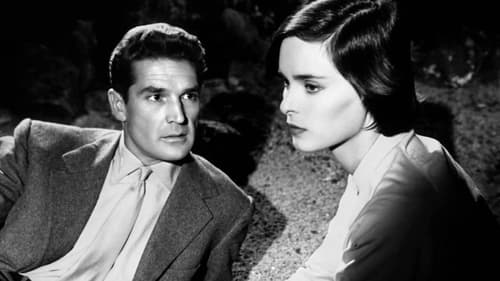
Clara
In a small town in southern France, on the seafront and not far from Italy, Dr. Valerio is working to heal the poor. His young wife, could no longer stand the place, encouraged him to go and settle in Nice but the doctor does not want to leave before having found a replacement. Valerio was particularly friendly with Sandro, an agricultural worker who maintains the trees belonging to Gorzone, wealthy industrialist and major employer in the city. Sandro, disturbed by the serious illness of his wife, is struggling to fulfill its functions. During an absence of his wife, Dr. Valerio meets Clara, a young Italian, and falls for her. The drama erupts when Gorzone dismisses Sandro ...

Lucia
A group of rich young intellectuals hiding from the war in rural Italy play at being partisans when some disbanded soldiers and some refugees ask them for shelter in their villa. The young and aristocratic Andrea strikes up a friendship with a peasant girl, Lucia. Then the Germans suddenly appear, looking for the real partisans, and the time comes for serious decisions.
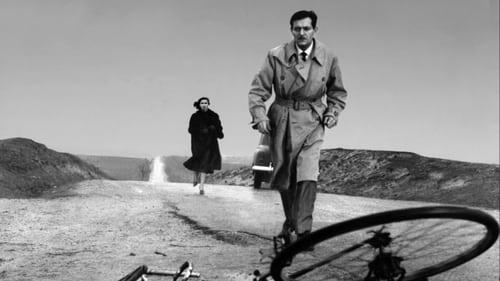
María José de Castro
A couple having an affair strike a bicyclist with their car and do not offer aid out of fear of their relationship being exposed.

Thérèse Miceli
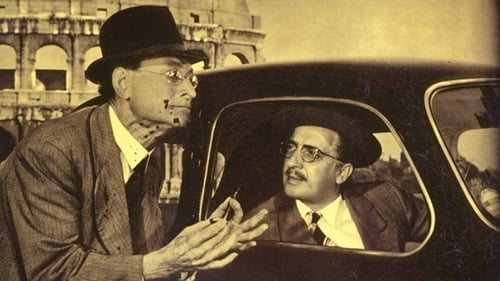
Stefania Giovetti
Everyday all kind of people pass through a Police Station, especially if it is downtown. Today, however, the chief of police has bought his first car and he has decided to test it with his wife going to Ostia. But first a theatrical company sent out of the theatre, last Alfredo Todini arrested while walking wearing a gown and in the mean a series of human cases, ranging from the pathetic to the funny one, get in the way of his wish.
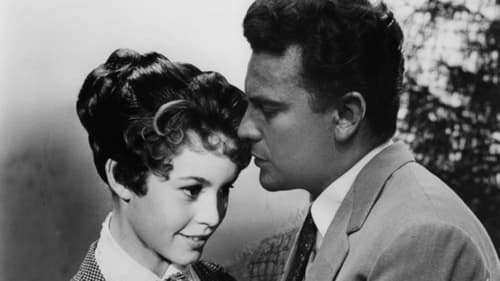
Elisabeth Tatabor
Brigitte Bardot stars in this romantic thriller about love and high treason in WWI-era Italy. Matinee idol-turned-filmmaker Mario Bonnard directs this opus.

Teresa Grob

Angela Reis, la sposa
A film made up of four episodes: a jar repairer gets trapped in a vat because of his hunch; a young unmarried mother is forced to beg to buy herself a fan; Rosario Chiarchiaro appears before a law court for casting spells; the discomfort of an overtight jacket gives a wedding witness the strength to persuade the bridegroom's reluctant parents to bless his union.

Nausicaa Invernaghi

Clara Manni
By a twist of fate, the photogenic Milanese shop assistant, Clara Manni, gets the leading role in Italian movie producer Gianni Franchi's romantic drama, "Addio Signora", and becomes an overnight sensation in Rome.
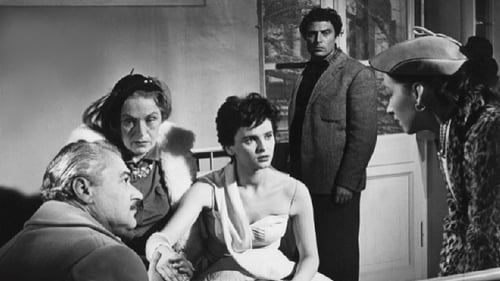
Simona
The story of 5 girls among 200 who answer a wanted ad for a modest secretarial position, which leads overcrowding in the building and a tragic accident.

Marisa Benvenuti
Three gorgeous seamstresses meet on the historic steps of the Piazza de Spagna in Rome to discuss one another's love lives.
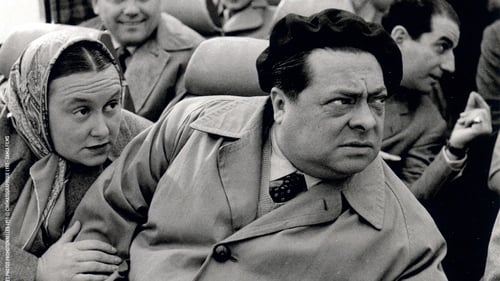
Mimi de Angelis
A group of Italian soccer fans arrive in Paris for a match, but most of them go their separate ways to explore the sights, have a bit of an adventure, and maybe even find some romance.

Clara Montesi
A naive clerk finds himself involved in the theft of a ring containing a dangerous liquid.
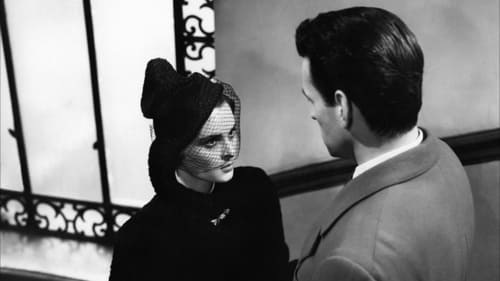
Paola Molon Fontana
Paola (Lucia Bose) is the beautiful and jealously-guarded younger wife of a shady factory owner, Enrico Fontana (Massimo Girotti). In order to investigate her romantic history he hires a private detective, which ironically brings Paola back into contact with former lover Guido, with whom she resurrects a lost passion. Dogged by the suspicions of their respective mates, they are drawn closer to each other in the face of adversity, and begin to plot Enrico's demise. But when the challenge of being together falls away, will the passion start to wane? A masterpiece of intensity and finely-wrought emotion.
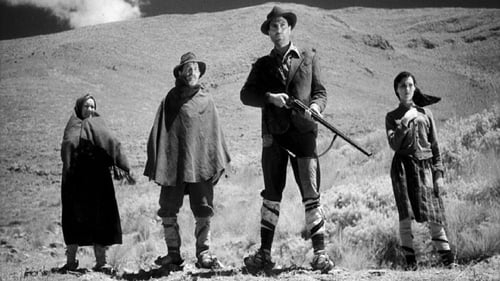
Lucia Silvestri
A young shepherd returns home after the Second World War having been held in a prisoner of war camp. He finds that the local landowner has stolen his sheep and his girlfriend. When he also assaults and murders his sister, the shepherd takes revenge.

The real masterpiece, among these early works by Risi, is certainly 1848 . Made to order for the centenary of the Milan uprising against Austrian rule, the film opens with a group of soldiers apathetically attending the dress rehearsal for a ballet at La Scala. Who knows if Visconti remembered it for the opening of Senso at the Fenice in Venice - when he certainly had in mind a little film directed by Corrado D'Errico in 1941, La Compagnia della teppa , in which a group insurgents use a Rossini premiere at La Scala to launch leaflets against the Napoleonic occupation.







































